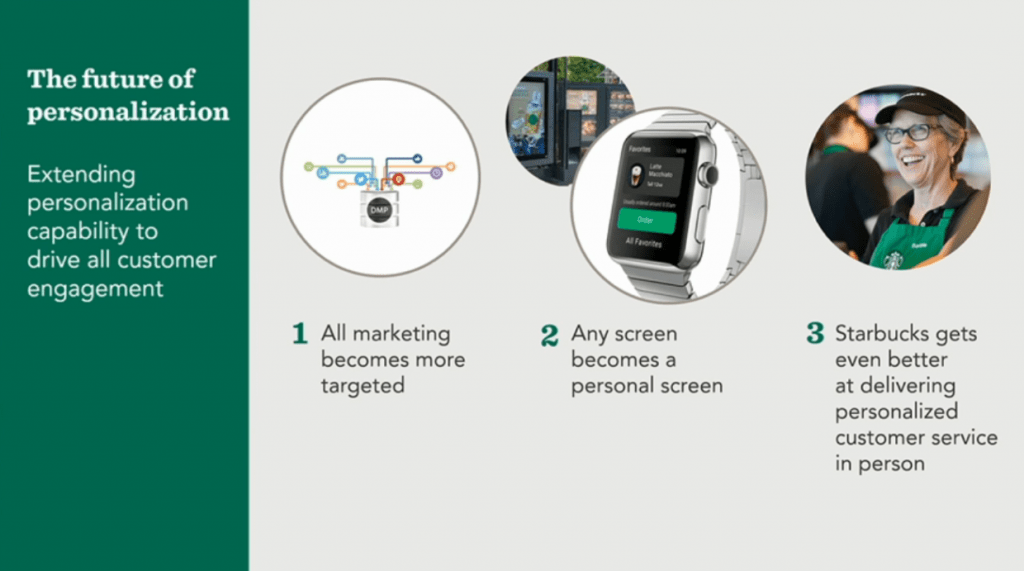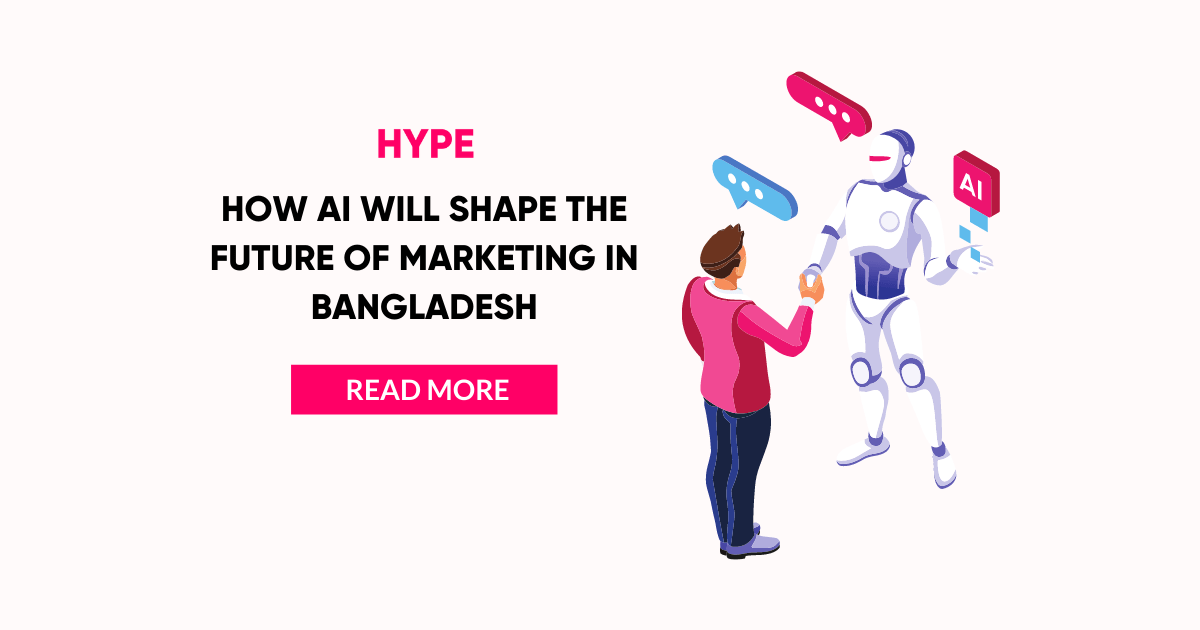In today’s fast-paced and digital-oriented landscape, artificial intelligence (AI) is emerging as one of the most effective social media and marketing outreach technologies. It has been used to change the way businesses attract, generate, and nurture leads.
In this blog, we will take a look at the future of AI in marketing in Bangladesh and the impact that this technology will have.
Over the last few years, the number of internet and social media users has surged. As of 2019, it is estimated that more than 3.4 billion people are actively using social media platforms.
With so many users on social media, it’s inevitable that your customers are amongst this group — along with your potential customers. But the question is, how do you reach them?
What’s the use of AI?
Industry thought leaders argue that recent AI advancements will help businesses turn prospective customers into raving fans in the future.
Marketers around the world are already reaping big returns on AI innovations.
So, how can you leverage this cutting-edge technology to give your business much-needed exposure in Bangladesh?
How AI Will Shape the Future of Marketing
- What is AI Programming?
- Core elements of AI marketing
- Future benefits of AI in marketing
1. What is AI Programming?
AI simulates human intelligence processes using machines and computer systems. These processes mainly include learning, reasoning, and self-correction.
In marketing, AI leverages concepts like machine learning and customer data to try and forecast a customer’s next move and help improve their journey.
The advancements in analytic solutions and the evolution of big data have helped marketers profile their target audiences. Armed with data insights, marketing teams are able to augment the performance of their marketing campaigns and see a higher ROI.
2. Core Elements of AI Marketing
There are multiple elements that have made AI as powerful as it is today. However, AI in marketing is supported by 3 main pillars. They include:
Big Data
As the name suggests, big data is based on a pretty straightforward concept. It gives marketers the ability to aggregate and profile large data sets with little manual work. The marketing team then uses this data to push campaigns to the right people, at the right time, using whichever channel they choose.
Machine Learning
Machine learning is the platform of choice for marketers when they are trying to decode huge data repositories. It helps marketing teams identify common patterns and trends within the accumulated data so that they can understand the root cause of trends and the likelihood of repetition.
Powerful Solutions
AI marketing solutions have a deep, human understanding of the world. As such, they are able to identify insightful concepts across huge data sets at an incredibly fast rate.
AI solutions are also helpful in interpreting emotions and communicating like humans, which makes them intelligent enough to understand natural language and open form content, like email responses and social media.
3. Future Benefits of AI in Marketing
AI marketing has enthralled marketing teams all over the world. According to a study from Statista, 84% of respondents said that AI gave them a business advantage over competitors.
So, what will AI spell for the future of marketing and marketing teams?
Below, we review the potential influence of AI in marketing in the upcoming years, which include:
- Improved product and content recommendations
- Better social engagement and customer service
- Improved search engines
- Better ads
These are only a few aspects of marketing that AI has the potential to improve.
Improved Product and Content Recommendations
The practice of profiling customers in order to predict their future behaviors began two decades ago. Over this same period, Amazon began deploying collaborative filtering to push recommendations to millions of customers.
Fast forward to today, and many blue-chip tech companies have built their product offering and business models around the concept of targeting customers with highly relevant and customized products or services.

All of this is the result of AI-based clustering and data interpretation compounded with demographics and profile information. By continually pairing and adapting to customer likes and dislikes, companies are now able to put forward new and tailored recommendations in real-time.
Better Social Engagement and Customer Service
The quality of social engagement and customer service before, during, and after the sales process is important — it could be the missing link between scoring loyal customers and conducting a one-time sale.
According to Salesforce’s 2018 State of Marketing Report, 33% of customers interviewed indicated that they were more compelled to drop a brand if they didn’t have top-notch customer service. Here are some other stats that illuminate how critical customer service is:
According to research from Microsoft, 97% of consumers say customer service is an important factor when they choose a brand.
Modern-day businesses likely won’t succeed without high-level customer service and support offerings.
Fortunately, AI-powered intelligent messaging platforms are helping businesses improve their overall customer service engagement experience.
Whether it’s retail, e-commerce, or healthcare, these platforms can register customer suggestions and feedback based on their buying habits. And this is where the future of customer service lies.
Improved Search Engines
AI has profoundly impacted the way we search for information online, along with the overall quality of the search experience.
In fact, Amazon and other large e-commerce sites have followed suit by incorporating AI into their search engines to make product searching smarter.
With innovations like semantic search and natural language processing (NLP), search engines are able to crawl through multiple websites, correlate similar links, auto-correct mistakes, and find relevant search results.
Equipped with these technologies, customers can discover products well-suited to their needs and interests, even if they weren’t originally sure what they were looking for.
Smarter Ads
With these advancements in big data and the proliferation of social media platforms, marketers are already working overtime to create smarter and more effective ads.
Using AI-based solutions, marketing teams dig deep into social profiles and keyword searches. Markets can ultimately create human-level outcomes using this information gathered by AI.
You can watch this video by Hubspot for a better understanding:
Marketers of Bangladesh Must Be Ready for AI
AI is infiltrating every aspect of our daily lives. There’s no better time for marketing teams to start leveraging AI strategies to create personalized experiences for their customers.
Specially in a country like Bangladesh where the market keeps on changing, the pressure of competitors is a continuous threat.
For example, if you look at bKash, initially being the sole strong player in the field of MFS industry, they enjoyed the bigger pie of the revenue for a very long time. But time has changed with the entrance of Nagad in the market and no wonder it compelled bKash to do something new to hold their position in the race.

So, in order to deal with the upcoming changes in the field of marketing in my opinion, brands should already consider AI to win the race in the long run.
Let us know if you like this blog. Check out our portfolio. Subscribe to our resource hub from below to get marketing tips, ideas, blogs like this, and free resources every week at your Inbox.
And, yes, if you’re looking for a marketing agency in Bangladesh to shape your new business, re-think the way you’re marketing now, or apply a data-driven approach fueled by tech platforms, what are you waiting for? CONTACT US for a free online discovery call.



